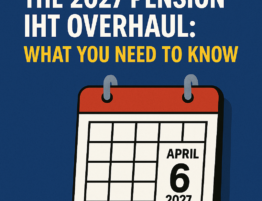
Abridged advice is designed to help advisers filter clients for whom a pension transfer is unlikely to be suitable.
It provides a mechanism to engage with someone who wishes to discuss their possible defined benefit transfer, but without going into full advice and most importantly committing the client to the full costs of advice.
It allows the adviser to ask for some standard basic information from the client to allow them to make a decision as to which possible route is feasible.
It is an optional service advisers can offer as part of their process and has two possible outcomes.
- A personal recommendation that the client shouldn’t transfer or convert their pension.
This can only be done if there is sufficient evidence from the limited information provided by the client to demonstrate a transfer isn’t suitable.
- A summary that it is unclear whether the client would benefit from a pension transfer based on the limited information provided as part of the abridged advice process. The purpose of this is to then offer full advice where further information can be gather to form a solid recommendation either to transfer or stay within the scheme.
It’s important to note that the outcome from abridged advice can’t be a recommendation to transfer. This can only be possible by going through a full advice process.
Assessment
All advisers will assume a starting point that a pension transfer isn’t suitable. This follows guidelines stated in the FCA handbook.
However, as part of the advice, an adviser should determine if staying within the scheme is also suitable. For example, the scheme could be well underfunded and at risk of failing.
The areas an adviser should consider and assess as part of the abridged advice process are:
- Intention of when the client wishes to access the pension
- The risks of staying in the current scheme
- The risks of transferring from a guaranteed income to a flexible benefit scheme.
- The views of a clients need for a guaranteed income
- The client experience, views and knowledge of investments. Has the client managed an of their own investments in the past.
- Has the client paid for advice in the past
- How much income does the client need in retirement and how much of this is met by the current pension benefits. What would be the impact of losing this guaranteed income.
- Are there any other ways to achieve the clients objectives from other funds/income
- The client own personal attitude to investment risk
An adviser offering abridged advice should offset the cost of the advice against the cost of full advice if the client were to go down that route. This is to ensure the client isn’t charged twice for the same work.
The new advice process to include abridged advice came into effect in Oct 2020 and was designed to help more people access advice in this area without potentially incurring full advice fee’s.
Due to the nature of the new form of advice, however, many advisers were initially nervous about offering the service.
Without any previous experience of the pitfalls and potential exposure to risk for advice firms, many felt staying away from offering such a service would protect their business.
Already, a year into the new form of advice, questions are already beginning to be made about its suitability and efficiency of it.
Advisers are asking for the format to be tweaked. Over the course of the last year, situations have arisen which may not have been thought of when designing the concept.
For example, a pension tax allowance issue (such as the Lump Sum Allowance or Annual Allowance) may come up which is relevant to the client, not the transfer, but under the abridged advice rules, this can’t be discussed.
Further discussion on the subject can be found here https://www.ftadviser.com/pensions/2021/09/09/abridged-advice-needs-to-be-tweaked-industry-says/
As a concept, we believe abridged advice is a good idea as it allows people potential access to advice without the full cost usually associated with it.
Also, read about what affects defined benefit transfer values
However, as with any new process, there are further improvements that could be made to make the experience smoother and more appropriate.
Need Expert Pension Transfer Advice?
As a qualified pension transfer specialist and Chartered Financial Adviser, I provide regulated advice on defined benefit and final salary pension transfers. Book a free 15-minute consultation to discuss your options.








